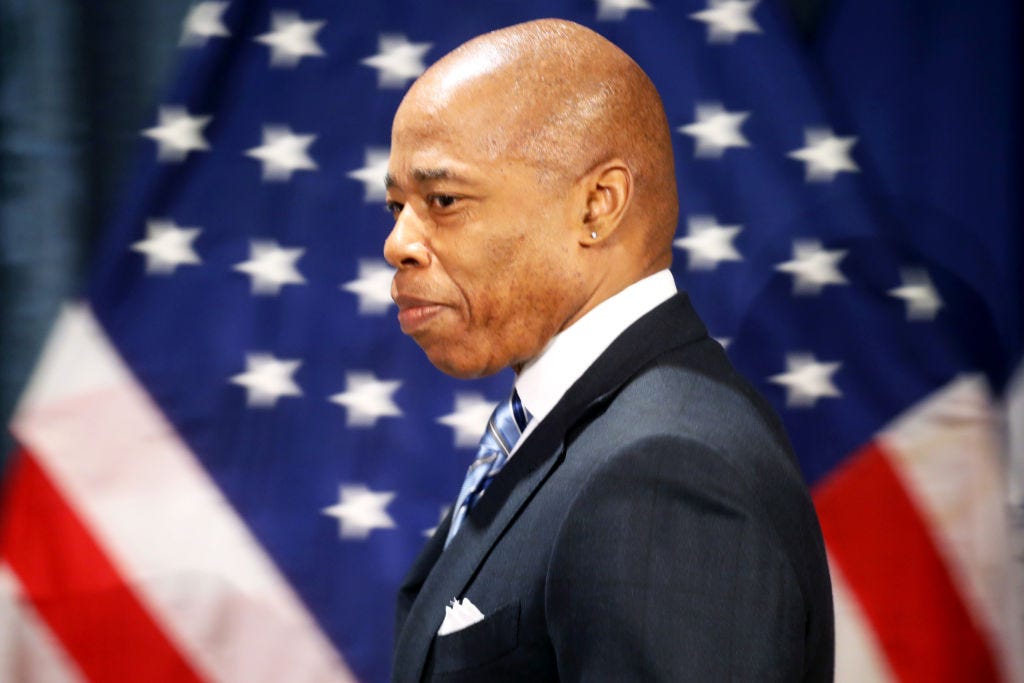When Political Capital Evaporates
Eric Adams and the trouble ahead
Last week, for the first time in several years, I walked around New York City Hall. The pandemic and then various work obligations had kept me away. I’m no longer a beat reporter, so there’s less of a reason for me to go there. It’s been, shockingly, a full decade since I started as a City Hall reporter covering the first year of the de Blasio administration. One banal observation I’ll make about aging is struggling to adjust for the ever-sliding timescale. It’s hard to accept that 2014 was ten years ago. In part, that’s because I was working ten years ago and I was already a full-fledged adult. In 2014, 2004 felt very far away because the gap between fourteen and twenty-four is enormous. Twenty-four and thirty-four brings about its own changes, but none quite as dramatic as the transition from adolescence to adulthood. (Unless, perhaps, you had children in those intervening ten years.)
I am very glad I was a City Hall reporter. I wouldn’t take that time back. I also would never do it again. Spending hours at a press conference can be tedious. Spending most of your workday among like-minded colleagues can be equally invigorating and constricting. I don’t think I began to truly flower as a reporter and writer until I drifted out of City Hall. The groupthink had exerted its pull. I remember, in 2016, thinking Donald Trump might win and being afraid to say this out loud. A turning point, for me, was the Access Hollywood tape, and my realization that I did not think Trump’s comments were enough to sink his presidential campaign. The “locker room talk” explanation, so roundly mocked then, made sense to me because I had spent enough time in locker rooms and among shit-talking kids from Brooklyn. Enough voters looked past what Trump had said and I understood why. Many journalists, including those residing in City Hall, didn’t see it that way. I remember one veteran reporter confidently declaring in Room 9—the famed workspace for the City Hall press corps—that Hillary Clinton was going to beat Trump in Texas.
Anyway, I enjoyed my time wandering around City Hall in 2024. I learned the basement vending machine now dispenses Coke Zeroes and takes credit cards. I saw the old press overflow room, also downstairs, had been taken over by the Department of Citywide Administrative Services, mostly because there just weren’t enough reporters coming to City Hall anymore to require an overflow room. A decade ago, with the tabloids boasting large City Hall bureaus, the room still had a purpose.
I had come to City Hall to see what never happened for the entire eight years Bill de Blasio was mayor of New York City: an override of a mayoral veto. For the second time in two years, the Democrat-dominated City Council was voting to override Mayor Eric Adams. It was all quite remarkable.
And it occurred to me, as I sat in the City Council chambers and watched lawmaker after lawmaker stand up to deliver impassioned speeches about the two pieces of legislation—a ban on solitary confinement in city jails, and new reporting requirements for investigatory stops the NYPD makes—that none of them feared the mayor of New York City.
We had truly entered a new era. Eric Adams’ political capital was gone.



